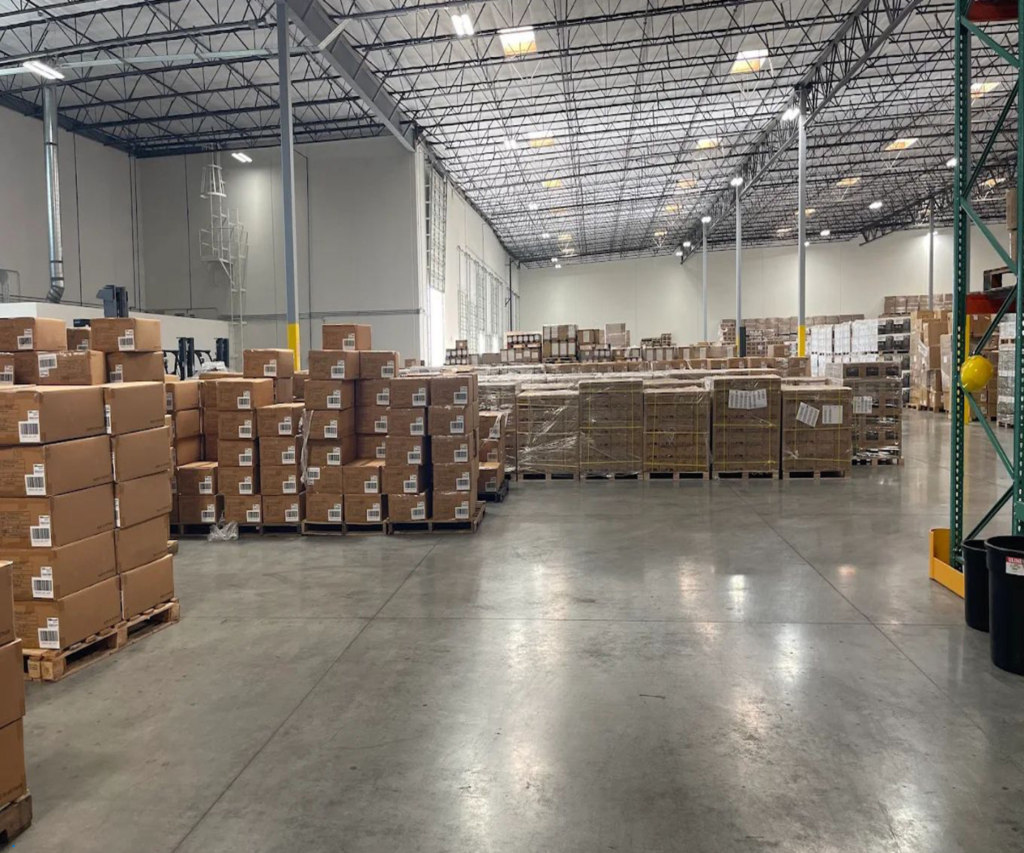As manufacturers strive to expand their reach and grow their businesses, many are turning to ecommerce as a critical tool for success. By leveraging ecommerce, manufacturers can streamline operations, improve customer experience, and tap into new markets.
But how do you navigate the unique challenges of manufacturing ecommerce, and what should you know before taking the leap?
This blog post explores the essentials of ecommerce for manufacturers, including actionable tips, key considerations, and insights into platforms like Adobe Commerce and Magento Open Source (Magento).
Whether you’re just starting or looking to upgrade your existing platform, this guide has you covered.
The Rise of Ecommerce for Manufacturers
Why Ecommerce is Critical for Manufacturers Today
The manufacturing sector is undergoing a significant transformation. As B2B buyers increasingly prefer digital transactions over traditional processes, ecommerce has become more than a convenience – it’s a necessity.
Here’s why:
- Changing Buyer Expectations: Today’s buyers demand seamless online experiences, even for complex B2B transactions
- Global Reach: Ecommerce enables manufacturers to access customers worldwide without needing physical locations
- Operational Efficiency: Automating sales processes and order fulfillment processes reduces overhead costs and improves accuracy
What is Manufacturing Ecommerce?
Manufacturing ecommerce refers to the online sale of products, parts, or equipment directly from manufacturers to businesses or end consumers.
Unlike traditional B2C ecommerce, manufacturing ecommerce often involves:
- Bulk orders with complex pricing structures
- Integration with Enterprise Resource Planning (ERP) systems
- Custom quotes and approval workflows
- Detailed product catalogs with technical specifications
How to Get Started with Ecommerce for Manufacturers
Step 1: Define Your Goals
Before diving in, clarify what you hope to achieve with your ecommerce platform. Common objectives include:
- Expanding into new markets
- Reducing sales cycle times
- Enhancing customer satisfaction
- Automating repetitive tasks like order processing
Step 2: Choose the Right Platform
Selecting an ecommerce platform is one of the most critical decisions you’ll make. For manufacturers, platforms like Magento and Adobe Commerce are excellent choices due to their flexibility and B2B capabilities.
Magento
An open-source platform ideal for small to mid-sized manufacturers
- Offers robust customisation options to meet unique business needs
- Free to use but requires technical expertise for setup and maintenance
- Supports seamless integration with ERP and CRM systems
Adobe Commerce
- A premium platform tailored for larger manufacturers with complex requirements
- Includes advanced features like customer segmentation, AI-driven product recommendations, and scalable infrastructure
- Supports seamless integration with ERP and CRM systems
Step 3: Prioritise Key Features for Manufacturing Ecommerce
To meet the unique needs of manufacturing businesses, your ecommerce platform should include:
Custom Pricing and Quotes
B2B customers often require personalised pricing based on volume, location, or existing contracts. Ensure your platform supports this functionality.
Comprehensive Product Catalogs
Manufacturers often deal with a wide range of SKUs. Use detailed product descriptions, images, and specifications to create a user-friendly catalogue.
Self-Service Portals
Allow customers to track orders, manage accounts, and download invoices without contacting support.
Integration with Existing Systems
Integrate your ecommerce platform with ERP, CRM, and inventory management systems to streamline operations.
Mobile-Friendly Design
With more buyers using mobile devices, a responsive design is crucial for delivering a seamless experience.
Step 4: Focus on Marketing and SEO
Ecommerce success doesn’t stop at building a website—you need to attract customers too. Consider:
- Pay-Per-Click (PPC) Advertising: Run targeted ads to quickly drive traffic to your site and capture high-intent leads. Platforms like Google Ads and LinkedIn can be especially effective for B2B marketing
- Content Marketing: Share case studies, product demos, and educational content to engage your audience
- Email Campaigns: Keep customers informed about new products, discounts, or industry trends
Benefits of Ecommerce for Manufacturers
Increased Sales Opportunities
Ecommerce enables manufacturers to reach new markets and sell to a broader audience, including international buyers.
Improved Efficiency
By automating order processing, inventory updates, and customer support, ecommerce reduces manual workload and speeds up operations.
Enhanced Customer Relationships
With features like live chat, personalised product recommendations, and self-service portals, manufacturers can offer superior customer service.
Data-Driven Decision Making
Ecommerce platforms provide valuable insights into customer behavior, enabling manufacturers to refine their strategies.
Overcoming Challenges in Manufacturing Ecommerce
Before you go live, make sure your ecommerce platform overcomes any obstacles in advance but taking into consideration the following:
1. Managing Large Product Catalogues
Organise products into clear categories and provide advanced search tools to help customers find what they need quickly.
2. Meeting Customer Expectations
B2B buyers often demand the same level of ease as B2C ecommerce. Offer features like easy reordering, account management, and live chat support.
3. Handling Technical Complexity
Partner with experienced ecommerce developers who understand the unique needs of manufacturers. Consider pre-built solutions like the B2B Accelerator for faster implementation.
Your Ecommerce Manufacturers Site
Ecommerce is no longer optional for manufacturers looking to grow in today’s competitive landscape.
By adopting the right strategies and leveraging platforms like Magento Open Source and Adobe Commerce, manufacturers can unlock new opportunities and deliver exceptional customer experiences.
Ready to take the next step? Contact us to learn more about how we can help you build a scalable and effective ecommerce platform tailored to your manufacturing business.
FAQs About Ecommerce for Manufacturers
1. Why do manufacturers need an ecommerce website?
An ecommerce website helps manufacturers streamline sales processes, reach new markets, and meet the digital expectations of modern buyers. It also reduces dependency on manual workflows and improves operational efficiency.
2. What are the best platforms for manufacturing ecommerce?
Popular platforms include Magento for small to mid-sized manufacturers and Adobe Commerce for larger businesses with complex needs. Both platforms offer flexibility, scalability, and features tailored for B2B operations.
3. How can manufacturers handle complex pricing structures online?
Adobe Commerce and Magento allow manufacturers to implement custom pricing rules, volume discounts, and customer-specific quotes, making it easy to manage complex pricing online.
4. What should manufacturers include on their ecommerce website?
Key features include a detailed product catalogue, custom pricing, order tracking, self-service portals, and integration with backend systems like ERP and CRM.
5. How long does it take to launch an ecommerce site for manufacturers?
The timeline varies depending on the platform and complexity. Typically, a B2B website with complex needs would take four to six months.
However, small-to-medium sized manufacturing companies that have fewer SKUs or less need for complex features could benefit from a solution like the B2B Accelerator, our rapid deployment service for Magento.
Using PORTAL, our homegrown Hyvä frontend theme, the B2B Accelerator will help manufacturers launch a fully functional site in weeks rather than months.




